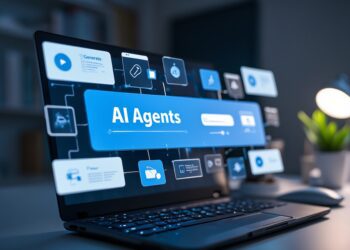We are at an inflection point, not only for business and industry, but for society at large. Board members and executives alike are excited at the chance to shape a future powered by the latest technologies of the day, including artificial intelligence and generative AI. But this does not come without risk and responsibility. The decisions leaders make today will have pervasive impacts on both the organizations they lead and societies around the world. Infusing a mindset of trust and ethics from the start will be vital to shaping short-term and long-term adoption. While AI is not new, its scaled use in the enterprise and by employees brings the question of governance and oversight of AI and gen AI into sharp focus.
So how are boards navigating these opportunities and challenges? How are they balancing their time to help ensure all pressing boardroom topics get the time and attention they deserve? And how are they confident that AI implementation is transparent, safe, and responsible with the appropriate guardrails?
As the following research shows, it’s complicated. What is resoundingly clear, though, is that boards are eager to spend more time on AI and gen AI, enhance their knowledge and experience, and accelerate the pace of adoption in their organizations.
This is a pivotal moment in the history of human invention—a moment future generations will certainly look back on. It’s imperative we reflect on the legacy we are creating as we navigate the path forward. We hope the insights from this Deloitte Global survey can spark and inform meaningful conversations in your boardrooms and with your management teams—inspiring a fresh look at whether and how AI and gen AI can play a role in your organization, all while keeping trust at the forefront.
When the gen AI tool ChatGPT exploded onto the global market in November 2022, it democratized access to the newest AI capabilities within a matter of days.1 Now, nearly two years later, the growth in AI investment continues to rise: Gartner forecasts that worldwide IT spending will total US$5.26 trillion in 2024, an increase of 7.5% from 2023, and points to generative AI-related investments as the main reason behind this growth.2
As organizations prepare to move past the piloting stage to integrate AI more broadly into strategy and operations, how active are boards in overseeing their organizations’ approach to AI? Are they providing the right level of stewardship to help the organizations’ management teams balance the wide array of opportunities and risks that AI can introduce?
In June 2024, the Deloitte Global Boardroom Program surveyed nearly 500 board members and C-suite executives across 57 countries to understand how involved boards have been in AI governance. The survey explored sentiments about the current pace of adoption and the board’s role in strategic oversight of this emerging technology (see methodology). We also spoke with board directors and Deloitte subject matter specialists to understand how AI stewardship is evolving in boardrooms around the world. Of note, while the survey asked respondents about both generative AI and artificial intelligence more broadly, our interviews revealed that many business leaders are primarily focused on gen AI adoption right now.
The data shows that boards are eager to spend more time on AI and gen AI, enhance their knowledge and experience, and accelerate the pace of adoption in their organizations. But how can boards best navigate these opportunities and challenges?
Read the full article by Lara Abrash, Prof. Dr. Arno Probst and Karen Edelman / Deloitte












